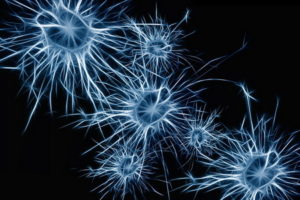
Water, the essential ingredient of life, but why is it essential? Why can’t we live without it and what are the benefits of drinking it? Here we will review its benefits and why it is so important to stay hydrated at all times.
1. Dehydration – Easily Prevented
First, what is dehydration?
When you feel thirsty, it is a sign that your body is telling you that you need to replenish yourself with liquids, so you grab a drink, but what if you don’t get that drink? What if there is no water available for a while? What if you are in a hot climate and need a drink but are miles away from any water source?
In these situations, you run the risk of getting dehydrated and that means that if you don’t rehydrate yourself within a reasonable amount of time, your organs will suffer, most specifically, your kidneys, heart and brain can be negatively affected.
This doesn’t mean that if you don’t drink anything right after a jog in the park on a hot day you will need to go to the emergency room, but it does mean that if you continue along this path of dehydration, you will start to feel the symptoms, which are:
- Feeling tired
- Dizziness
- Dry mouth
- Dry skin
- Dark-colored urine
What symptoms you fell all depends upon your current health, as well as the environment you are in (e.g. hot climate, etc.). Some people can withstand a lack if water longer than others.
How Do You Prevent Dehydration?
If you are involved in any sport, are traveling or you know you will be in an area where liquids will be sparse, especially in hot climates, make sure you have some water bottles or drinks with you all times. Even bottles of soda will help with hydration.
2. H20 is Good ‘Food’ for Your Brain
 Water makes up 75 percent of your brain. If your brain does not have an adequate supply of this fluid you may feel foggy-headed and dizzy, but more importantly, it will affect your memory. This is especially crucial for the elderly to take note of.
Water makes up 75 percent of your brain. If your brain does not have an adequate supply of this fluid you may feel foggy-headed and dizzy, but more importantly, it will affect your memory. This is especially crucial for the elderly to take note of.
Additionally, a lack of water in the brain will cause a deficiency in cognitive responses. Reduced electrolytes, which assist with the brain’s electrical signals can result in memory loss and other factors such as confusion.
3. Your Spinal Cord and Joints Depend Heavily on Water
You need to keep the tissues in your body moist. Usually, that is part of your body’s normal maintenance, but if dehydrated, your body will notify you. For one thing, your eyes, nose and mouth will feel dry. Your bones can get thirsty too, which is not good. Water acts as a lubricant and cushion to protect your bones, the spinal cord and the joints.
4. Water Aids in Digestion
Besides lubricating your body’s organs, water helps to break down the food you eat. The small and large intestines absorb water, which breaks down important nutrients. Water helps slow down digestion as this fiber turns to gel.
5. Your Heart Will Thank You
 For those who are not aware, your blood plasma is about 90 percent water. If you are dehydrated, you stand the risk of lower blood pressure to the point that you may feel light-headed or dizzy when you are standing up. Now this condition can happen under other circumstances than dehydration (e.g. medication side effects), but if you haven’t drunk anything for a while, it may be that you are dehydrated; however, it these symptoms keep happening, a visit to the doctor would be the practical way to do.
For those who are not aware, your blood plasma is about 90 percent water. If you are dehydrated, you stand the risk of lower blood pressure to the point that you may feel light-headed or dizzy when you are standing up. Now this condition can happen under other circumstances than dehydration (e.g. medication side effects), but if you haven’t drunk anything for a while, it may be that you are dehydrated; however, it these symptoms keep happening, a visit to the doctor would be the practical way to do.
How Much Water Do You Need?
On average, men need about four quarts of H20 per day and women should have about three quarts per day and it doesn’t have to be always water. It can be any type of fluid (but we’re not talking about alcohol here). Most beverages as well as certain fruits and vegetables. So grab that Gatorade. Eat that watermelon, but most of all, make sure you also drink the most natural fluid for your body – good old fashion water!
